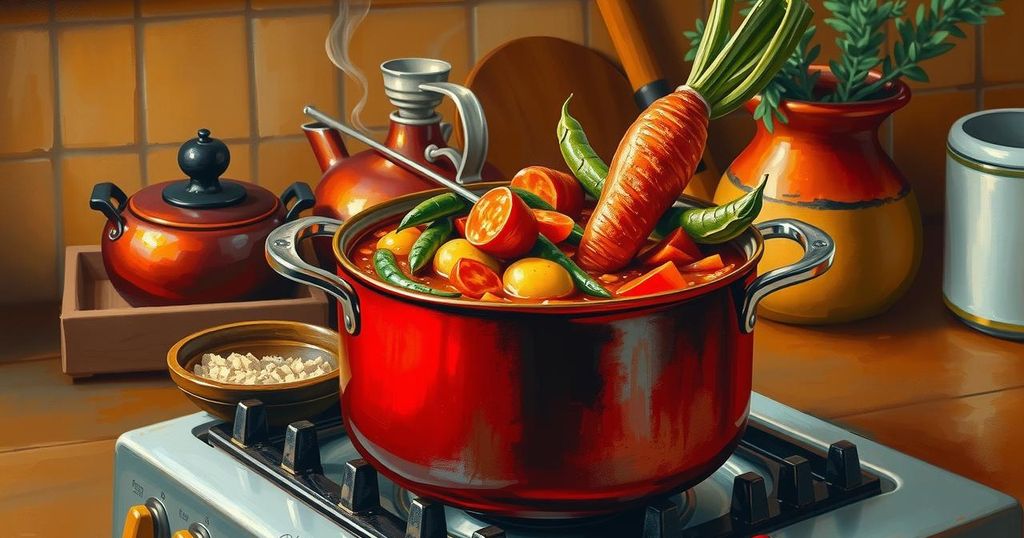The cost of staple stew in Nigeria has risen by 121% in just one year, with essential ingredients experiencing significant price hikes. Low-income households are particularly affected as food inflation persists. Broader economic factors and supply chain issues worsen the crisis, prompting concerns among policymakers about long-term relief.
In Lagos, Nigeria, the cost of preparing the staple stew has increased by over 121% in just one year, raising it to ₦17,817 from ₦8,060 in 2023. This sharp rise reflects the broader cost-of-living crisis affecting households due to skyrocketing food prices and ongoing inflation, as reported in the PricePally 2024 Stew Index Report.
The price of essential ingredients has also seen dramatic increases. For instance, a pot of chicken stew now costs ₦15,034, a significant jump from ₦7,085, while goat meat stew has surged by 153.03%, rising from ₦8,227 to ₦20,811. Even a basic protein-free stew has increased from ₦4,387 in 2023 to ₦11,317 in 2024.
Food inflation has impacted low-income earners disproportionately, with the current minimum wage of ₦70,000 per month requiring a minimum wage worker to allocate 25.45% of their salary to prepare a single pot of beef stew. This is an increase from 24.42% under the former minimum wage of ₦33,000.
The prices of essential ingredients like tomatoes and onions have also surged. The cost of tomatoes per kilogram rose from ₦1,506 in July 2023 to ₦2,625 by September 2024, while onions increased dramatically from ₦971.86 to ₦3,000 within the same period.
Basil Abia, co-founder of Veriv Africa, pointed out that the seasonality of tomatoes contributes to their rising costs, alongside significant post-harvest losses attributed to inadequate infrastructure. The loss ratio for tomatoes can reach as high as 80% in some areas due to poor storage and transportation.
Further contributing to the food price increase is the rise in meat prices. Beef jumped from ₦4,050 to ₦6,500 and goat meat increased from ₦3,856 to ₦8,500. Structural issues such as inadequate cold storage and poor transport networks hinder the meat supply, exacerbating price hikes.
Broader economic conditions also contribute to rising inflation. The foreign exchange rate has dramatically worsened, with the naira dropping from around ₦700 per dollar 18 months ago to approximately ₦1,500 today. These economic challenges, combined with high fuel prices and additional costs from road checkpoints, directly affect food pricing.
Despite signs of slowing inflation, the combination of supply chain disruptions continues to threaten elevated food prices, creating concern among policymakers regarding long-term relief for affected populations.
The dramatic increase in the cost of stew preparations in Nigeria foregrounds a deepening economic crisis fueled by escalating food prices and inflation. Essential ingredients have seen substantial price hikes, affecting low-income households drastically. Structural weaknesses in supply chains and adverse economic conditions further complicate the situation, raising concerns among policymakers regarding sustainable solutions to stabilize food prices amidst ongoing inflationary pressures.
Original Source: techcabal.com






